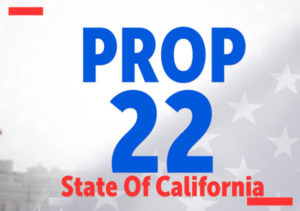
If you have $200,000,000 lying around, there’s something new you can do with it. You can write your own law in California. That’s effectively what Uber, Lyft, Doordash, and others did recently so they could classify their employees as independent contractors. It allows them to save hundreds of millions of dollars annually by not having to pay their fair share of FICA taxes (Social Security and Medicare), unemployment insurance, worker’s compensation, and state and federally mandated benefits such as health benefits, family and medical leave, and paid time off.
I usually don’t get too wrapped up in politics, but this one got me pretty wound up, as those close to me can attest. But, the election’s over, the people have spoken, and Proposition 22 passed. So before I put this one behind me, there are just a few remaining items I’m going to say, and then I’ll let this one rest for good.
It’s a bad precedent
Uber, Lyft and others have yet to turn a profit. Even with the benefit of treating their core employees as independent contractors, their business model doesn’t work. If they have to reclassify their core employees as true employees, these companies would have to change their business model to stay in afloat.
Instead of changing their business model, these companies threw over $200,000,000 at Proposition 22 to make sure it would pass. It sets a bad precedent. If a law meant to serve the public good impedes you from making a profit, don’t adjust your business model, write your own law to support your business.
I wouldn’t be surprised to see similar propositions on future ballots. If the state passes a law hindering your business, just write a law to strike it down. For big companies, $200,000,000 is not a lot of money, especially when it is an investment to guarantee future profits.
You can’t have it both ways
You can’t lobby to exempt your “independent contractors” from government support programs that you should be paying into, and then ask the government to include them in unemployment bailout packages. What Uber and Lyft are effectively doing is offloading the money they should be spending into unemployment funds to the general tax paying public. Even more ironic is that the tax paying public is supported them by passing proposition 22.
It comes down to this. Independent contractors choose that lifestyle. As such, they are not covered by unemployment benefits, state sponsored disability insurance, or worker’s compensation, which are paid for by employers. If Uber and Lyft want the government to support their employees when they are out of work, then step up, classify them as employees, and pay into the unemployment insurance funds.
Super-super-super majority to overturn
What surprised most about the proposition 22 campaign is that very few mentioned it would take a 7/8 majority of the legislature to make changes to any provisions in it. It didn’t come up in any of the ad campaigns against proposition 22. This, to me, is a total jab in the public’s eye. What’s the point of having a legislative body if anyone can write laws and put in provisions that they can’t be overturned. I take this as Uber and Lyft wanted to really stick it to the government of California, and the public acquiesced.
Moving on…
OK, so it’s time to move on. Proposition 22 passed. I can’t change it, I can only accept it.
However, I consider myself an optimist and a pragmatist. Classifying these employees as independent contractors is a bad law as well as bad business practice. While it looks good now, it’s not going to end well. When something is bad for the hive, it has a working itself out for the best. I’m confident that this will happen with AB 5 and Proposition 22, and it will work out in a way that is in the best interest of the general public.
As a footnote to this rant, let me state for the record that I am not anti-independent contractor. What bothers me is when companies focus on greed and don’t do the right thing. In this case, these companies are circumventing laws that were put in place for a reason – to protect workers from unfair labor practices. Circumventing these practices comes at a cost, and it’s a cost that is being passed to the general public. I get there are nuances in this discussion. I also believe there is a fair way to work this out such that Uber and Lyft could have a blended workforce. Some people working as employees and others as independent contractors, but that’s a discussion for another time.
